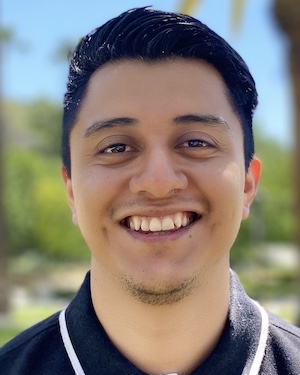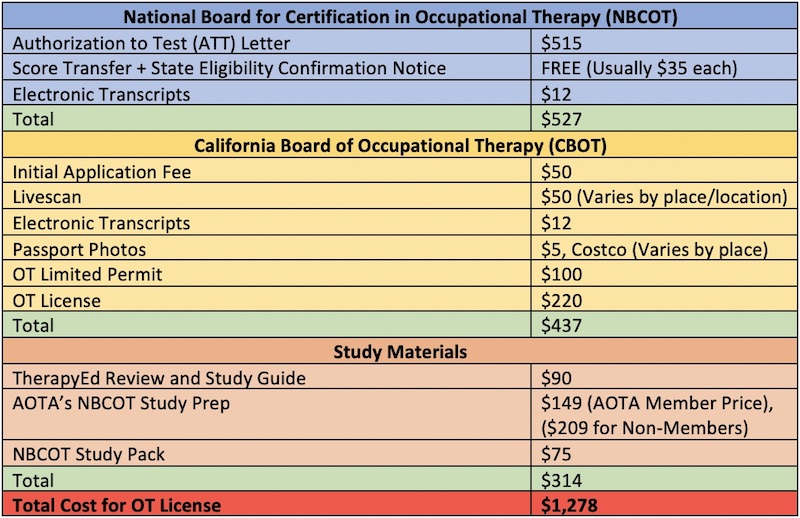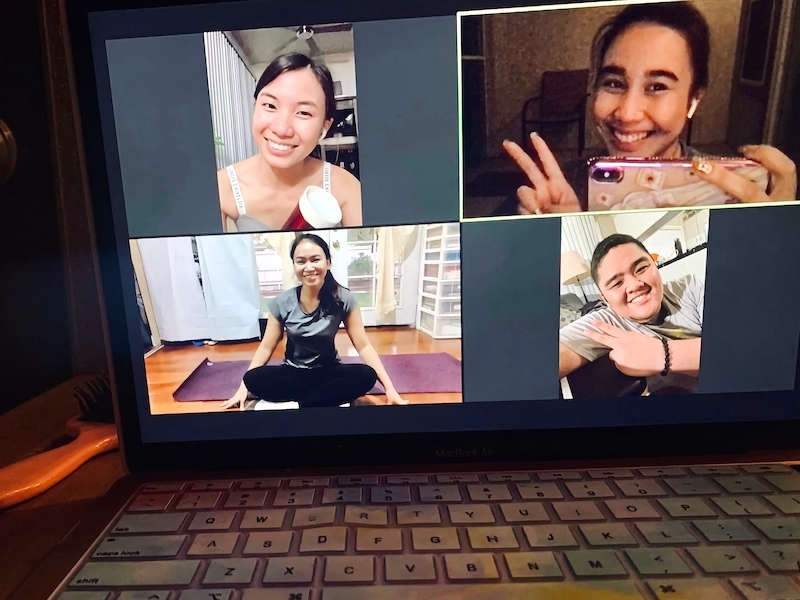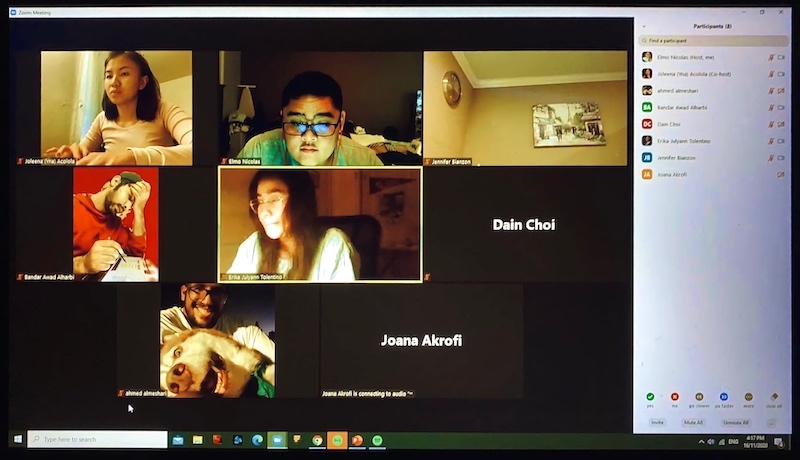Student Blog
Life Hacks

Learning to Lean on Others ⟩
December 23, 2020, by Savi
Life Hacks
I got a text last night from one of my best friends in the program stating, “If I ever come to you seeking advice and you don’t have the mental capacity just let me know! And I seriously am here whenever you need advice or to vent!” To give you context to this message, earlier that day my friend had overheard me sigh heavily after looking at my phone. She asked what was wrong, and I explained that sometimes I just get overwhelmed by the number of people I feel like rely on me, even if deep down I know that they will be alright if I don’t answer their text or don’t help them problem-solve a solution to an issue. If friends, acquaintances, or family reach out to me, I know they believe I can help them and I feel compelled to go above and beyond in order to make their lives a little bit easier. I felt weird saying this out loud and immediately felt a sense of shame about believing that there was a lot of pressure on me to fulfill a role no one actually expects me to fulfill.
As occupational therapists, we are tasked with making meaningful occupations more accessible to our clients. I love my job, but I do find it difficult to switch off my “OT” lens/brain when I leave work or school.
I sat and tried to process how I could prevent this from happening and I soon came to terms with the fact that I will never fully feel like me unless I am there to listen to my friends or assist with problem-solving a solution to an issue they are experiencing. I feel honored to be someone that people feel comfortable confiding in and I take great pride in being there to help them better understand their worth, capabilities, and strengths.
For that reason, I have decided to focus on the second part of my friend’s message: “I am here if you need me.” I am so willing to be there for others to help them overcome hurdles to participating in their meaningful occupations, but I rarely find myself reaching out to others when I need help myself. I immediately replied to my friend and told her that I will definitely take her up on her offer because I know she truly means it. I also know that every one of my friends and family would do the same and that I am not a nuisance to any of them. I am not myself without my meaningful occupations, and I typically refrain from participating in them if I am overwhelmed or stressed. If people in my life are willing to come and open up to me then I should be willing to do the same! That way we can all participate in the activities and occupations that make us feel whole again . . . I mean I am definitely not the best version of myself unless I go on a walk/run outside, take a warm shower, and get at least 7 hours of sleep.
So if you’re like me and you can’t seem to step away from the OT mindset even when you leave work, that is ok! Just know that you are surrounded by people who want to help you in the same way . . . even if they haven’t officially been trained to do it 😉. Know that you are not a burden and make sure that you are allowing yourself the opportunity to participate in the occupations that are most meaningful to you!
⋯

Overcoming Rejection and Feelings of Inadequecy ⟩
December 9, 2020, by Savi
Classes Getting Involved Life Hacks
As my last semester of classes has come to an end, I had anticipated feeling relieved. I now sit here, having passed all of the courses I need to graduate from this Master’s program, feeling immensely overwhelmed and discouraged. Up until this moment, everything had been mapped out for me. Each class that I would take and when I would take them were pre-determined. I knew that I just had to work hard and do my best in order to be successful academically.
I am currently studying for the COMPS (comprehensive exam) that I will be taking on December 15th with the rest of my graduating class and I am worrying about my future. This future is not pre-determined and it is scary, especially amidst a global pandemic. It is up to me to pave the way.
During this hectic time, I have also decided to pursue my OTD. After going through the interview process for the USC Chan Division residencies and being informed that I did not receive one, I felt extremely discouraged. I took this rejection as an indication that I was not good enough to get the opportunities I had been aiming for. I became anxious over the fact that I would have to find my own residency, especially because I was worried that my lack of experience in my field of choice would prevent me not only from getting a residency but also a fieldwork II experience.
This stress and feeling of inadequacy was something that was difficult to overcome. After sitting back and reflecting, I came to realize that I was letting one rejection skew my view of my self-worth and capabilities . . . just one rejection held that much power over me!
It wasn’t until I realized that if I didn’t believe in myself then who would!? I decided that if I didn’t try my best to go after the positions and experiences I feel like I deserve and want then I would regret it tremendously. I couldn’t let one rejection deplete my confidence and I knew that even if there were more rejections to come I would learn from them and keep moving forward.
I spent the coming weeks being polite and persistent. I began communicating with people who could help me develop the residency position of my dreams. Putting all the pieces together was tricky, and it took a lot of persistence to progress things further. Advocating for myself and my worth was key in progressing things forward, as well as acknowledging the work and effort the people communicating with me were putting in.
Your future is what you make of it. Be persistent, confident, understanding, and kind. Know that the person you are talking to will never know the mark you can make if you don’t advocate for yourself and your worth. Don’t let rejection take a toll on you. Sometimes putting in the extra work to make things happen really pays off! Advocate for yourself and believe in yourself because no one can do it better than you.
⋯

All About That Quarantine Life (Experiences + Study tips) ⟩
November 27, 2020, by Yna
Classes Life Hacks
Studying in quarantine is something that none of us has ever done before, so for those of you who are feeling lost, well, you are not alone! As I have mentioned in my previous blog, this has brought me feelings of anxiety too as I was about to take my final exams (which all went pretty well by the way, yay!). As I have spent a whole semester of figuring out how to navigate this new setup (all while trying my best to look like I have it all together . . . lol), I have picked up a few hacks that some of you may find beneficial.
Develop healthy habits and routines
One of the benefits that many of us have found from doing remote learning is getting to skip the extra steps of having to prepare for and travel to school. With classes being held online, you really only have to worry about being presentable from the chest up (because they’re never going to find out if you’re still in your jammies anyway, right?) and traveling from your bed to your study desk right beside it. I am not even going to lie, I enjoyed being able to just roll out of bed and go straight to class whenever I don’t feel like getting up early. While this might have given me extra hours of precious sleep, in the long run, I realized it became an unhealthy habit I had adopted. I started from waking up at least an hour before class, to 30 minutes prior, to 5 minutes before, and there was even a time that I was late because I overslept (a huge shout out to my dear classmates who noticed I was missing and immediately gave me a wakeup call)! I mean, yeah, everyone has those down days when you’re just feeling extra tired and in need of more sleep; but I realized I had overused this benefit to the point that I had been skipping breakfast altogether for consecutive days. Over time, I found my everyday routine drastically changing — eating habits were disrupted and irregular sleeping patterns have developed — ultimately affecting my study habits because the lack of routine often left me feeling all over the place and unable to focus. And so, I really would suggest waking up a little bit earlier before class to give you some time to eat a good breakfast, savor your cup of coffee, take a shower, maybe do some reading on the materials, and really, to just get your mind oriented and ready for class. And honestly, who doesn’t love just getting a moment to yourself at the start of the day? Besides, how you begin your day kind of sets the stage of how the rest of your day is going to look like, so try your best not to start it in such a rush.
Set up your space neatly
Not only do you need to set up your mind, you also need to set up your space all ready for work. A cluttered environment = a cluttered mind! I ended up getting a new desk and chair that’s ergonomically correct for my workstation to facilitate proper posture, but this really isn’t a necessity. There are many ways to adapt and work with what you currently have (using pillows for your back, step stool for feet support, etc.) — we as OTs know all about this! I’ve had to experiment a couple times playing with different positioning of my desk that works best for me in relation to lighting, room temperature, and appearance on Zoom background (making sure the space behind me has low traffic to avoid bloopers during class, LOL).
Take breaks
I know, you’re probably already tired of hearing this; but truth be told, this new setup has got us sitting in front of our computers for most of the day — without us even realizing it! I admit, I, too, am a victim of this. The advent of technology has advanced the speed of information processing by a ton, that it’s getting harder and harder for us, humans, to keep up. Nevertheless, we still try our best to answer emails as soon as they get to our inboxes, and accomplish any other task that needs to be done “just to get it out of the way,” am I right? The to-do list goes on and the next thing you know, you had already been working for hours straight. And when you finally decide to take a minute to pause, that’s when you’re going to feel them all at once — strained eyes, pain from the neck all the way to your lower back, hungry stomach, tired arms and fingers from hours of typing with poor posture. This is why I really appreciate our professors who sees to it that they allot some time during the class to give us multiple breaks as our chance to stretch, hydrate, go to the restroom, or grab something to eat (to be honest, sometimes I even take a nap — just make sure you wake up in time!). You can also set up your own physical activity reminders at different points throughout the day using your smartphone or watch.
Get physical!
In relation to my previous tip, I found it helpful to incorporate exercise in my weekly routine as my form of physical activity to battle this increasingly sedentary lifestyle. Of course, it’s not like I just woke up one day deciding to start working out and then consistently did it. New routines take time to develop, so don’t be too hard on yourself! You really don’t want this to be another source of pressure for you aside from other responsibilities that you already have. What definitely helped me get motivated and stick to the schedule was doing it with my friends, who also happened to be in the same program as mine — leaving us with pretty much similar class schedules and free time to exercise.
Study in groups
Since we’ve already set up workout sessions, might as well extend it to study sessions with friends too! I know, you’re practically already in Zoom most of the day for classes so you might ask: why choose to add more hours on the screen? Well, for me, seeing other people (albeit virtually) so focused on studying gives me the boost to do my own studying too. Basically, one of us sets up a meeting and keeps it open for several hours where people are free to come and go. This gives everyone a little bit of flexibility since we all have other responsibilities in our own busy lives. As a bonus, if we do a great job focusing for a couple hours, we reward ourselves with a few minutes to chill and casually talk with each other (someone’s gotta be responsible in making sure we go back to studying, though!)
Some of the students in the Post-Professional Master’s program studying for our final exams. Credits to Elmo for the photo, and also for setting up the Zoom meetings for the class!
In addition to these, you can also check out Savi’s blog and find some tips on staying organized! I hope you find these useful for your own studying, especially those who will be taking their comprehensive exams next month. You got this! Best of luck to you all, and Fight On!
⋯

Last Step, But it Comes with a Price (The Cost of Getting Your OT License) ⟩
November 23, 2020, by Daniel
Life Hacks
This is the time when many of you are finishing your Fall semester, and for class of 2021 this is the end of the didactic part of the Master’s program for you! Congratulations! Time flies by right? Once you are done with the COMPS Exam and get some well-deserved rest during the holidays, you will be gone for 8 months doing level-2 fieldwork. Perhaps you may feel like it is too early to start thinking about the NBCOT or OT License application process, but trust me, that will come sooner that you expect it. I wanted to take this time, while it is still fresh on my mind, to share with you the costs I accumulated the last couple of months in the process of getting my OT license. Last week I received an email stating that my California OT License was approved and I am officially an OTR/L!! But first, I had to pay the final license fee.

Breakdown of my expenses from August to November 2020
So . . . $1,278, that was the total spent to get my OT license. I was not happy about it either. Yes, that is a lot of money and for many students it may not be easy to get that amount of money. This is the reason why I think it’s important to start thinking about it now, even if it’s still a year away. You want to make sure you are planning ahead and if you can set aside some money for when this time comes. I understand that my experience may be different from other students, and keep in mind that these were my costs for 2020 in the state of California. If you are applying for your OT limited permit and/or license, the process and costs may look different. Lastly, the process doesn’t really change but make sure you are checking all the updated requirements.
I remember when I was in the Master’s program I knew I would have to pay for NBCOT exam, OT License, etc. but it wasn’t until I did my research that I realized just how expensive it is. And how does one “save money” while being a full time student, being at fieldwork, and perhaps not having an consistent income? Unfortunately, there isn’t one specific answer for that. However, there are a few things I would recommend as you prepare for the costs of getting your OT license.
- Apply apply apply for scholarships! Last year I applied to the California Foundation of Occupational Therapy (CFOT) Scholarship and was selected, which is one of the ways I had funds for NBCOT/OT license expenses. If you haven’t already, please check our USC Chan Scholarship Page which includes USC and non-USC scholarship opportunities throughout the year.
- Select your study materials wisely and talk to former OT students about their experience preparing for the NBCOT exam. You may not have to get every single study material out there. I made that mistake this past year because I panicked and didn’t inform myself prior to buying study materials. As I began studying, I realized there are many free resources to study for the NBCOT. Please see previous blog that talks more about study materials I used, including free resources.
- Consider the timeline from completing your last level-2 fieldwork to when you will need your OT limited permit and/or license. The reason I bring this up is because you may be able to reduce your costs if you don’t need your OT limited permit for example. For OTD students in the clinical track, we were required to apply for the OT limited permit in order to provide any type of client care. For other OTD tracks or if you are front-loading all your OTD courses, make sure you are in communication with Dr. Bream to understand your timeline and expectations for getting your OT limited permit and/or license. Many of my classmates that decided not to do the OTD, only had to pay for the OT license since they waited to apply for jobs until they passed the NBCOT and their license was approved.
- For physical study materials (i.e., TherapyEd book, Occupational Therapy Examination Review Guide) check your class Facebook page, Facebook NBCOT study groups, and with former OT students as they may be willing to sell you the study books for cheaper. Also, don’t forget to use your study materials from the program (i.e., Pedretti book)!
- Start setting money aside now, if possible. If you find yourself working during fieldwork, this may be something worth considering. I was fortunate to work as OTD Student Ambassador during the summer, helping ease the financial burden of all the expenses.
- Get creative! Start a fundraiser! You may able to raise part of the money by selling food, baked goods, etc.
“Ugh, I have to pay more money to get my license?” Those were my exact words because it is frustrating every time you learn about additional expenses. Perhaps, the tips I provided are helpful for some you, but I think the most important part is that you are aware of those final costs that are going to come no matter what. Haven’t some sense of direction can help you plan ahead the best way that you can. Remember this will be the final step in fulfilling that dream of becoming an OT! You have done the work, and it will all be worth it in the end. If at any point you feel stuck or find yourself in a situation where you cannot afford the costs please reach out to me (.(JavaScript must be enabled to view this email address)). Later in the academic year, I will share with you all a blog post specifically to explain the NBCOT and CBOT application process, stay tuned!
⋯

Stand Out During Your Interviews ⟩
November 20, 2020, by Lamoni
Admissions Life Hacks
Now that I have completed my OTD residency interviews, I want to reflect on that process and hopefully give some useful tips to those that are currently in an interview stage of their OT journey. This is not purely for residency interviews, but it is also applicable to job interviews and OT program interviews. In any interview, you want to put your best foot forward and show how much of an asset you are. But standing out is not about listing off all of your accomplishments. Despite the phrase of “standing out,” interviews are also about how well you fit in. From my personal experience with college interviews, job interviews, grad school interviews, and residency interviews, here are some important things to consider.
Why do you want to be there?
Biggest, most important question to ask yourself. Before you begin answering their question of “why should you be here?” is the question of “why do you want to be there?” I mean, why put yourself through the stressful process of interviewing if you have no reason to? When answering this question, it cannot stop at “because it pays the most” or “because it’s the top program.” That will not elicit any passion in your responses (unless you’re a really great actor). This is likely a place that you will stay for years so why pretend to like it.
When choosing places of interest, I would often ask myself these questions: What about this organization appeals to you? Where do you see yourself in the future and does this job or program align with that? Do you share similar values? Do you feel like you will be supported?
Once you answer these questions for yourself, you either get more excited about the idea of studying/working/training at that organization OR you lose interest. If you were excited, the next step is to show that enthusiasm and excitement during your interview. Being able to talk about why you value this place shows that you did your research and that you are serious about the opportunity. You should always have background on the place that you are interviewing for. Reading over their mission statement is a great place to start but it should go deeper than that. Did they hold any events that spoke to you? Is there a faculty member there that has done tremendous work to advance the field? What is this organization known for and how did that come about? Knowing more about a place will never hurt; it actually puts you at an advantage over the other applicants.
What can you bring to the table and what do you need to work on?
The famous “Strengths and Weaknesses” question. You knew it was coming! This is definitely a question that you should be prepared to answer *even if it is not explicitly asked. Whenever it is appropriate to do so, talk about your strengths. The interviewer wants to hear about how strong of a candidate you are. Yes, we are socialized to be humble (and in most instances, you should be) but now is not the time. What are your accomplishments and how do they fit into this role that you are applying for? This is your time to tastefully brag. Big emphasis on “tastefully” because you do not want to seem boastful. Afterall, you still need to show that you are collaborative and a good team-member. OTs do a lot of collaborating, you know.
If you are unsure about your strengths and weaknesses, performance evaluations from past supervisors can help you to determine this. During check-ins with teachers and bosses, there are some common themes that come up for me. This gave me insight to where I truly shine.
Something that we all probably know by now, but it does not hurt to say it again – your weaknesses should not be actual weaknesses. Do not self-sabotage! Yes, these are things that you need to work on but think of it as a strength in disguise. For example, one of my weaknesses is that I have a hard time delegating to others. I have difficulty in this area because I want to maximize everything to my standard. I would explain this to the interviewer and while it is a “weakness,” it indirectly says that I produce high-quality work.
Be Yourself
You may be tired of hearing it. The idea of being yourself sounds so bleh. Like, is it really even a tip? But, it is! When you go into an interview, show your best SELF. Do not try to be someone else because it will become obvious. The only way to answer questions with authenticity, passion, and confidence is by being yourself and speaking to your OWN stories and experiences. Your values and what is meaningful to you should naturally pour out. They want to see your face light up when you talk about how you were introduced to OT, how your body language shifts when you discuss health disparities, or how your smile widens when you speak of your advocacy efforts. This is what they want to see. They want to see YOU—what matters to you, why are you the best addition to their team, what is special about you. You are very unique, and you bring your own unique skills. Make this known.
Multiple Offers?
We focus a lot on getting an offer but not as much on deciding between multiple. It is good to be prepared for that possibility. Even before hearing back, I think that it is useful to rank the places that you are applying to. It helps you to organize your thoughts and gain a better sense of what you are seeking from this experience. Maybe one residency pays more but it is also further away, and you have to factor in the transportation cost. Maybe one program is closer to home but the other has a faculty member that you would be interested in doing research with. There are several things to consider when weighing your options. Ultimately, you have to decide what is most important to you. It helps to write it out or talk it through with someone else. When I was deciding between two residency offers, I spoke to someone about it and she made me address questions that I had not even considered. Having someone else’s brain to help you sort out your list of pros and cons can truly help. After speaking with her, I received almost instant clarity and was able to make my decision.
A very special tip
About 10 minutes before an interview, I do this really corny thing where I stand in the mirror in a power pose and give myself a pep talk. It goes something like “Lamoni Lucas, you are so amazing! You are smart, dedicated, compassionate, etc. It shows because you did X,Y,Z. You are deserving of all great things! Don’t be nervous. This is an opportunity! An opportunity to show others how special you are.” I usually point at myself too. Words of affirmation is my love language, so this works especially well for me. If this is not enough and you need a daily reminder, you can write yourself a love letter and post it at your desk. Read it every morning or night. If your love language is physical touch, you can give yourself a big, tight hug. Maybe kiss the mirror. I don’t know. Whatever floats your boat, use it. Give yourself some extra love and remind yourself of how wonderful you are! Good luck to you all!
⋯







